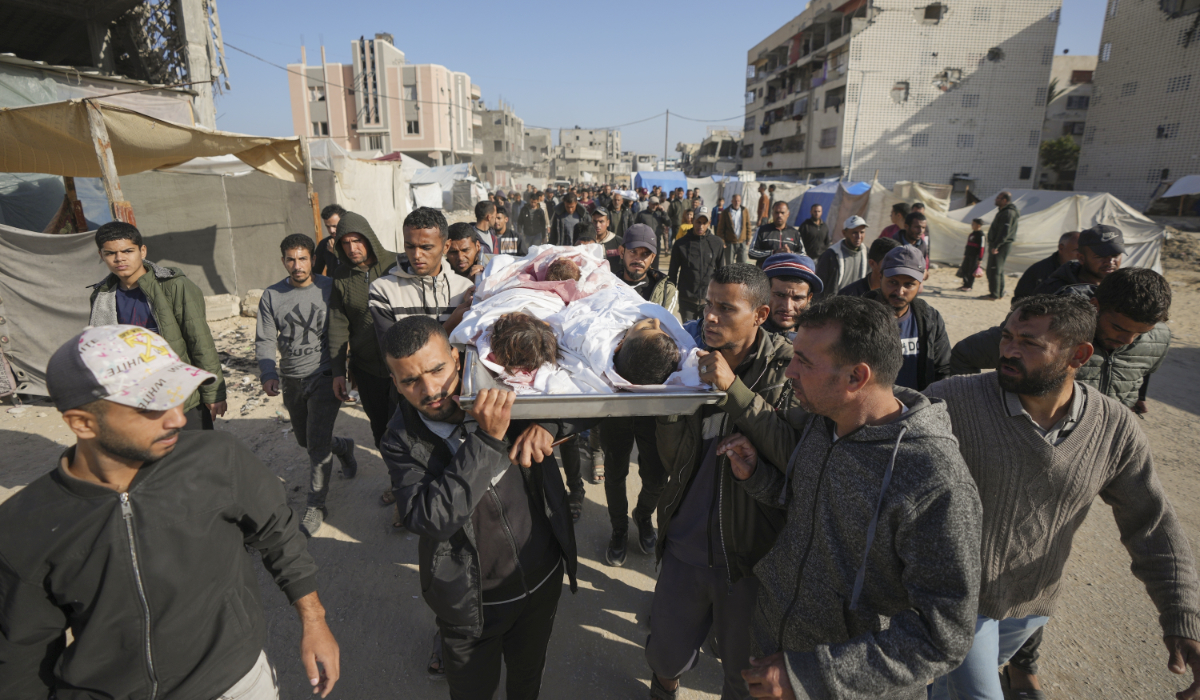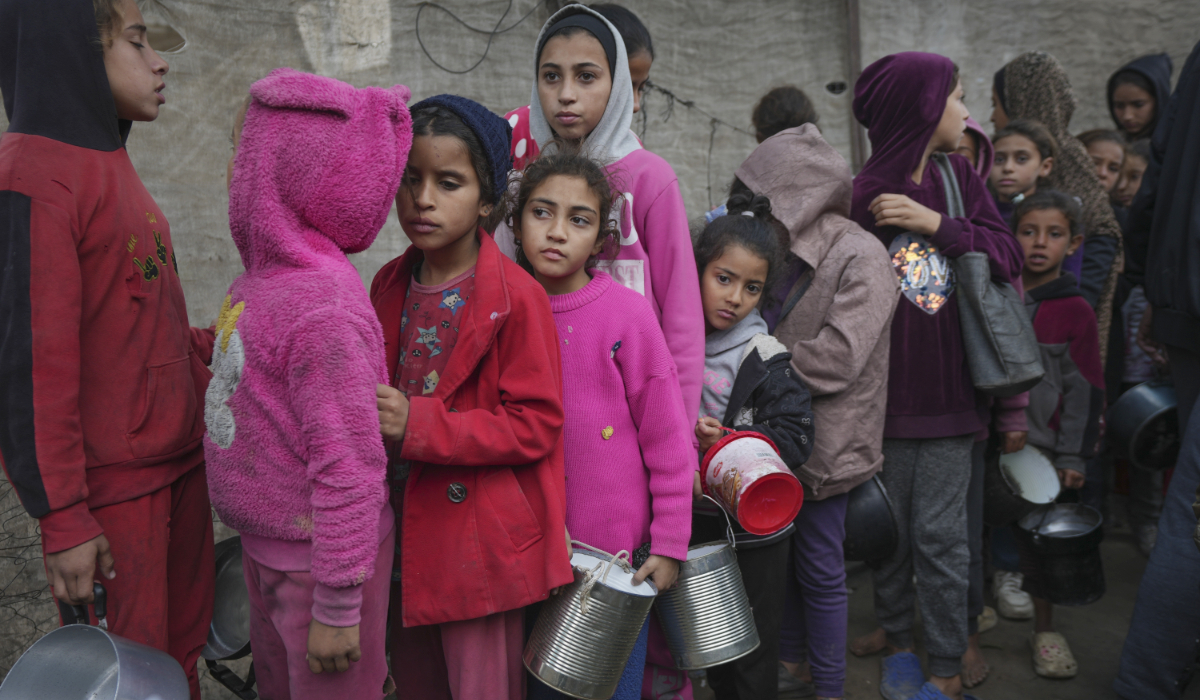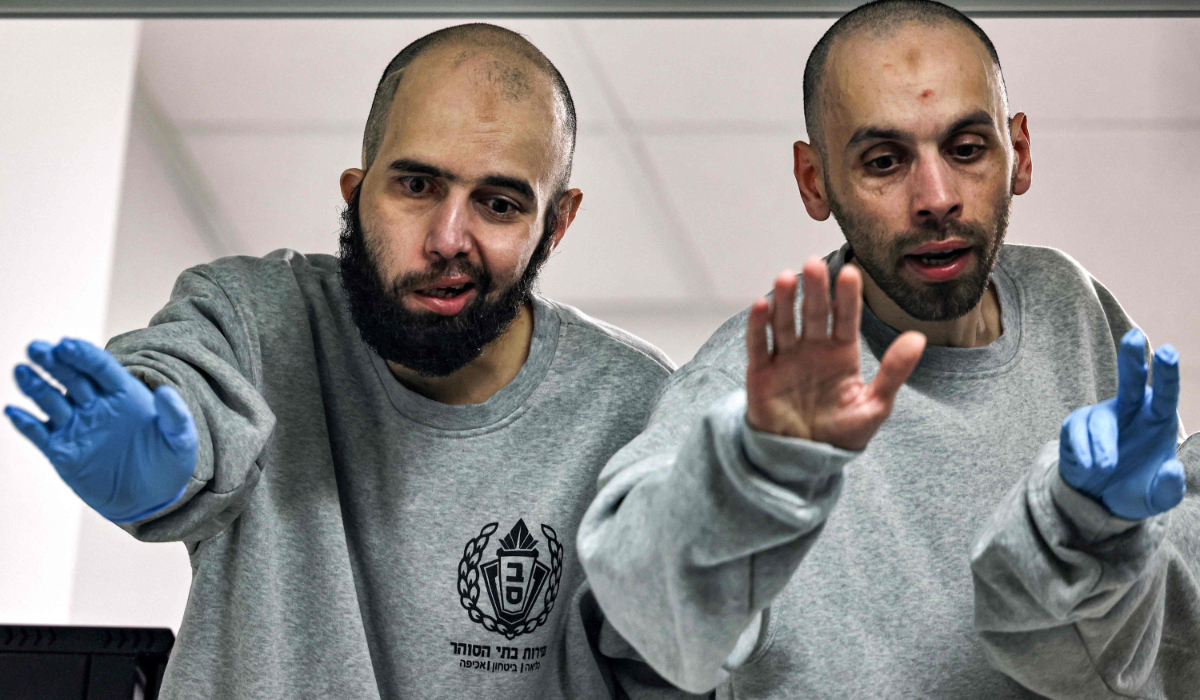BEIRUT: Lebanon’s Interior Minister Bassam Mawlawi on Friday urged everyone to “stay calm and refrain from attacking others.”
The country, he said on Friday, “respects human rights, and we protect everyone on its territory legally.”
He emphasized the importance of “enforcing the law for all residents.”
The minister’s appeal came as the funeral of Lebanese Forces official Pascal Sleiman turned into a campaign against the presence of Syrian refugees in Lebanon.
Lebanon “does not allow asylum, as there are safe areas in Syria,” Mawlawi said.
Mawlawi estimated the proportion of Syrians detained in Lebanese prisons at 35 percent of the total number of those being held.
The Lebanese army was deployed in security-sensitive areas, especially between Chiyah and Ain Al-Remmaneh, and reinforced its presence in the southern suburbs of Beirut.
The caretaker minister of displaced affairs, Issam Sharaf El-Din, said there are 20,000 armed men in the refugee camps and that security in Lebanon is not under control.
Thousands of supporters of the Lebanese Forces and other Christian parties took part in the funeral of Sleiman — the Lebanese Forces’ coordinator in Jbeil, northern Lebanon.
The coffin was wrapped in the Lebanese flag and his party’s banner.
At the funeral, at Saint Georges Church in Jbeil, Patriarch Bechara Al-Rahi stressed the importance of mercy and justice.
Al-Rahi — the highest Christian authority in Lebanon — said that the decisions of war and peace no longer belonged to the Lebanese state.
Meanwhile, the investigation into the crime appeared not to be making much progress.
The only information available revealed that a group of Syrians killed Sleiman by hitting him on the head after stealing his Audi car. The body was placed in the trunk of the car and taken to the Lebanese-Syrian border. It was found on Syrian territory last Sunday.
Questioning of the Syrian detainees suspected of the crime revealed that the group believed to be responsible for the kidnapping and killing of Sleiman is part of a gang whose members are involved in a range of activities, including car theft.
Stolen cars are transported to the border and delivered to smugglers, who in turn move them into Syria via an illegal crossing. Another group in Syria buys these cars, where some are broken up and sold for parts.
The murder of Sleiman has had serious repercussions, including attacks on Syrian refugees in predominantly Christian areas.
Syrian workers and refugees were publicly threatened and ordered to leave neighborhoods in the eastern outskirts of Beirut, Bsharri and other towns, no later than Friday.
Syrian families were seen hastily leaving their homes, dragging their children and carrying their belongings.
Attacks also targeted the Syrian Social Nationalist Party, an ally of Hezbollah and the Syrian regime, and the party’s centers and ambulances were attacked in Mount Lebanon and Bekaa.
The murder of Sleiman and the increase in violence against Syrian refugees and workers highlights the asylum issue in the country. Lebanon complains about the more than 1.5 million Syrians on its territory, fewer than a million of whom are registered with UNHCR.
In his speech on Friday, Al-Rahi urged everyone to control their emotions and reactions and avoid being drawn into discord.
Al-Rahi stressed the importance of “mercy and justice.”
He said Sleiman’s wife affirmed “her trust in the military and security apparatuses, especially the army, which managed to uncover the perpetrators.”
Al-Rahi added: “The important thing is to know the objectives of the crime and who is behind it, as the truth will inevitably emerge.
“But it is unfortunate that the perpetrators of this crime were displaced Syrians whom Lebanon has welcomed with humanity, and some of them have become a threat to the Lebanese in their own homes, and it has become important to control their presence.
“It is the duty of the Lebanese authorities to address this gravely dangerous issue through legal and procedural means.”
Al-Rahi said that “the main reason facilitating politically covered crimes by influential people is the failure to elect a president for the state, the chaos in constitutional institutions, and the proliferation of weapons.
“Who benefits from this chaos? The decision of war and peace has moved outside the state’s jurisdiction,” he said, referring to Hezbollah.
The leader of the Lebanese Forces, Samir Geagea, addressed those gathered at the church via Zoom.
He said that the “confrontation continues. Our confrontation is not for revenge, nor is it reactionary or based on sectarianism or regionalism. Rather, it is to transition from our bitter reality to the desired reality. The reality of all civilized societies is that a person can live with pride and dignity.
The leader of the Christian party also said: “Our struggle will continue until assassinations and kidnappings cease, until we have secure and regulated borders, until a corrupt and failed government is replaced democratically, and until those responsible for crimes such as the Beirut port explosion and the killing of Elias Hasrouni and others are exposed and brought to justice.”
Hasrouni, a Lebanese Forces member, was killed last year under mysterious circumstances in an area loyal to Hezbollah in southern Lebanon.
Geagea also said: “Do not bet on our disappointment; we will not despair, we will not tire. Do not bet on our retreat; we will not surrender. Do not bet on our memory; we will not forget. And do not bet on time; we will not change our mind.”
The Lebanese Forces party has accused “out-of-control weapons” of being responsible for Suleiman’s killing without directly accusing Hezbollah of being responsible for the crime.
The LF believes there are many gaps in the security narrative of Suleiman’s killing. The party insists that the crime is “political until proven otherwise.”
After the incident, and a few hours before the announcement of Suleiman’s killing, Hezbollah Secretary General Hassan Nasrallah accused “the Lebanese Forces party and its allies of fueling conflict.”
Interior minister calls for calm and restraint after killing of Lebanese Forces official
https://arab.news/6vyrn
Interior minister calls for calm and restraint after killing of Lebanese Forces official

- Lebanon “does not allow asylum, as there are safe areas in Syria,” Mawlawi said
- Geagea: ‘Our ongoing conflict is not driven by revenge or sectarianism’





























